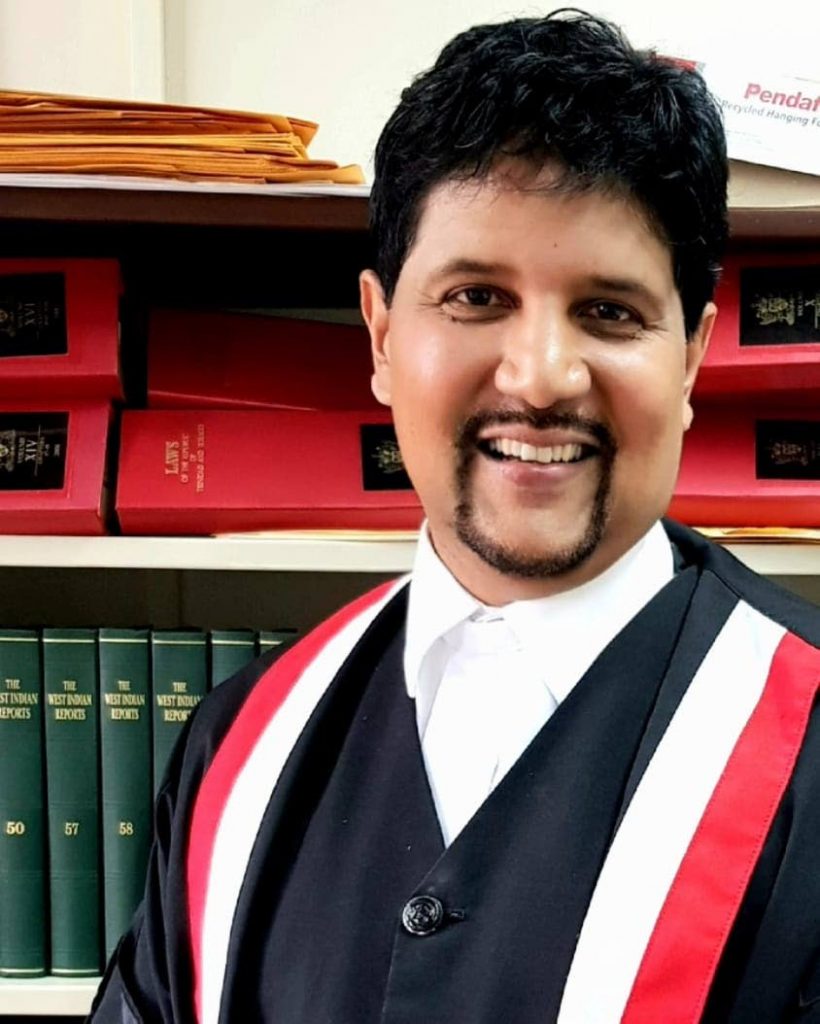Seepersad still awaiting info on judges' appointments

JUSTICE Frank Seepersad has given the Judicial and Legal Service Commission (JLSC) an ultimatum to give him answers on the process for promoting judges to the Court of Appeal or meet him in court.
More than a month after he questioned the promotion process, Seepersad’s attorneys have sent another pre-action protocol letter to the JLSC letting them know he intends to go to court for the information.
Queen’s Counsel Anand Beharrylal, who is representing the judge, wrote to the JLSC and the Solicitor General, reminding them of the previous pre-action letter and request for information on the process and the scores of judges.
They gave the JLSC 30 days to respond. In its initial response, the JLSC told Beharrylal that the information was “being compiled.”
On Monday, Beharrylal said Seepersad’s request for information was justified in the public interest and without it, the judge is unable to obtain proper legal advice.
“Accordingly, I am instructed to bring a claim for judicial review against the JLSC for its failure to provide the information requested, to render a decision on the information requested,” Beharrylal said.
He also told the JLSC the claim will include a request for access to official documents. However, he said that to resolve the issue without going to court, the documents and information asked for can be sent to his client in 28 days.
“For the avoidance of doubt, there will be no further pre-action correspondence before my client’s claim is issued,” he warned.
If he does go to court, Seepersad will be asking the court to declare that the JLSC breached its duty by failing to approve or refuse his freedom of information request or give reasons for any deferral of access to the information.
The judge will also be asking for a declaration that he is entitled to the information and an order that he receives it in seven days.
In his letter, Beharrylal acknowledged the constraints posed by the covid19 but pointed out that the courts have taken steps to progress litigation expeditiously.
“As such, there is no reason why my client’s request could not have been addressed with the use of e-technology within the urgent time frame,” he said.
Beharrylal added, “Finally, whilst all litigants are equal before the courts, it should be noted that my client is a sitting High Court judge centrally involved in the administration of justice in Trinidad and Tobago.
“He is seeking information from the JLSC that bears on the process of appointments to the Court of Appeal of TT, which is the pre-eminent appellate court in the republic.
“My client respectfully considers that it ought not to be necessary to resort to litigation on what was and remains a completely reasonable FOIA request, which is consistent with and supports the principles of transparency and integrity that should apply to the process of appointments to the Court of Appeal,” the letter said.
Seepersad wants answers on the JLSC’s appointment process and his own application.
He applied and was interviewed on October 16, 2019. Eight of the 20 judges who applied met the criteria for promotion.
On January 28, he wrote to the JLSC for information and was told to make a request under the Freedom of Information Act.
In a response to questions from Newsday in March, the JLSC said, “The Chief Justice did not participate in the interview process” for the judges selected for promotion.
Seepersad has been vocal about the need for the JLSC to adopt a fair and transparent process in relation to the appointment and elevation of judges.
He has also spoken out about Archie’s stewardship and the lack of transparency in the Judiciary.
Back in 2015, the criteria for the appointment and elevation of judges were also met with strong criticism among judges and lawyers.
In response to critics – who he described as “disgruntled malcontents” – Archie said judges would be promoted on the basis of merit, not seniority.
“Elevation is not a long-service award or an entitlement that is accessible by the mere effluxion of time,” said the Chief Justice then. “It is an honour which is earned.”
He said the JLSC looked for a particular balance and a combination of skills and aptitude in the Court of Appeal because it was a collegiate decision-making body.
Archie also explained that there was a detailed process of consultation and all who were eligible had been considered. “Firstly, appellate judges are canvassed as to their assessment of the temperament, writing ability, overall suitability, and team spirit.
"Then every member of the JLSC was supplied with several samples of written opinion work to assess not just the judge’s output, but the maturity, scholarship, clarity and potential to be a sound appellate opinion writer, not just in areas of specialisation but across the broad range of matters that are likely to come before the appellate court.”
Also, “The Bar was canvassed via the President of the Law Association who was invited to seek the view of the senior practitioners who appear before the court,” he said back then.

Comments
"Seepersad still awaiting info on judges’ appointments"